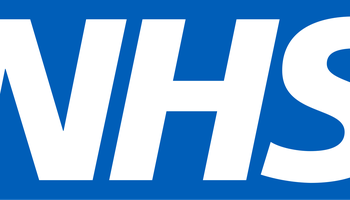This is our response to the consultation Open Communications: a Smart Data scheme for the UK telecoms market.
Since its inception, the Open Data Institute has been committed to our mission: to work with companies and governments to build an open, trustworthy data ecosystem.
Our response to this consultation builds on our experience across various data portability initiatives, as well as some early work with Ofcom on the development of Open Communications. We ran a workshop with potential data users, consumer advocacy groups and government in November 2019 on behalf of Ofcom, exploring possibilities for the future of data sharing in the sector and wrote up the findings in an openly available report. The ODI also responded to Ofcom’s Open Communications consultation in 2020. In some cases we wish to reiterate similar points, while in other cases we have further developed our thinking.
Other examples of the ODI’s work on data portability include our work on Open Banking - for example, as a member of the Open Banking Working Group that helped develop the standards and guidelines for open banking, as part of the Open Banking Expert Consumer Group and as participants in the Future Entity Working Groups, where we have also submitted our views. We have also responded to the FCA consultation on Open Finance.
Further to this, the ODI has supported open data initiatives with Ofgem and Ofwat, and has stewarded the OpenActive initiative to generate open data in the sports sector since 2016. Our Head of Policy Resham Kotecha is currently an Advisory Council Member of the government’s Smart Data Council launched in April 2023, set up “to help lower bills for consumers and small firms by making it easier to switch utility providers”. We are also currently in the process of setting up a Smart Data Challenge, which was launched at the end of October in cooperation with the Department for Business & Trade, Challenge Works, and Smart Data Foundry.
We see the Open Communications scheme as a pillar of the overall Smart Data ecosystem in the UK. The Open Communications scheme should not be developed in isolation from other Smart Data schemes, but together with Open Banking and others. As such the implementation/standards bodies for smart data in each sector can work towards building and maintaining data infrastructure, which could include sharing datasets, linking data through standards, identifiers, etc, and ensuring robust security measures. This will take efforts and resources for coordination and use case development across the smart data ecosystem.
In all, opening access to data, particularly data about people, is beneficial but has significant risks associated. These should be carefully and thoroughly attended to, while benefits to people, and especially to those individuals and communities already in vulnerable circumstances, should be prioritised in such a scheme. In addition, in our view such a scheme should aim to add dynamism to the market economy, and the benefits should not be concentrated on bigger entities but shared with small and medium enterprises and others, as well as empowering consumers.
Key elements of our response include
- Opening access to data in smart data schemes, particularly data about people, is beneficial but has significant risks associated to be considered. Impacts on people, especially vulnerable individuals, should be prioritised
- The Open Communications scheme should be viewed as a pillar of the overall Smart Data ecosystem in the UK. It can be used in coordination with other Smart Data schemes including Open Banking for sharing datasets, linking data through use of standards, and ensuring best practice in terms of security and other elements of data stewardship
- Key benefits of the scheme include improving understanding and choice when deciding on communications products, which can result in personal cost savings, and improved ability for organisations to enter the market, level of innovation and products available
- Key challenges include potential risks of misuse, costs for data portability passed on and sharing of poor data


